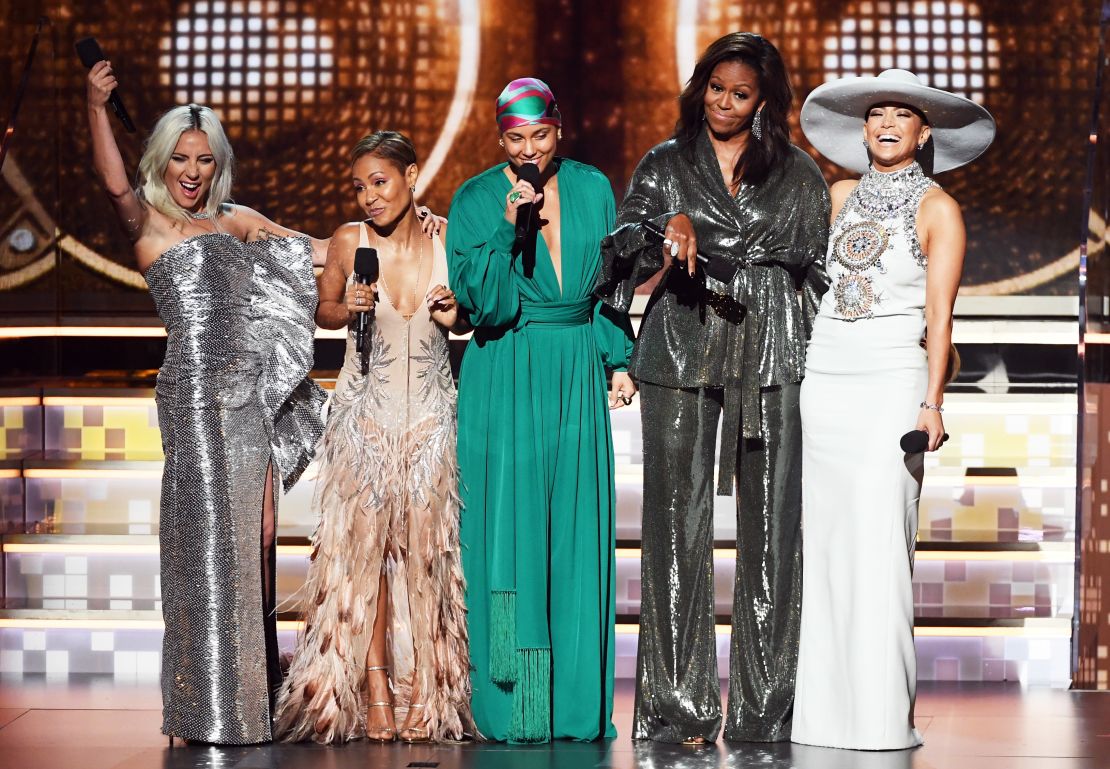The Grammy Awards were hardly perfect, but they offered their share of satisfying moments and buzzworthy miscues, as well as an eclectic mix of performers and winners. So a collective sigh of relief is surely emanating from the award-show industrial complex, after the show’s ratings were basically flat compared to last year.
The Grammys averaged 19.9 million viewers, per Nielsen data, which actually represents a slight uptick compared to last year. The audience among adults age 18-49 – the key demographic on which ad sales are based – did slip about 7% below year-ago levels, to an all-time low.
By contrast, viewing of the Grammys dropped precipitously in 2018, in what turned out to be a harbinger for the Oscars, which took a similar dive, each falling by more than 20%.
Since then, the Academy of Motion Picture Arts and Sciences (which presents the Oscars) and ABC have experienced a semi-public panic attack over how to arrest that decline, resulting in the mystery leading up to this year’s host-free telecast.
Related: Oscars to go host-less
The Recording Academy has faced similar pressures, if not quite as ostentatiously, before delivering a mostly entertaining show – with an expanded list of nominees in key categories – emceed by Alicia Keys, after two years of CBS latenight host James Corden.
Notably, some of the proposed “fixes” for Oscar ratings didn’t seem to be a major issue for the Grammys. For starters, ABC has been eager to trim the broadcast’s length, holding it close to three hours. The Grammys ran several minutes past their allotted 3 ½-hour window, despite abruptly cutting Drake’s acceptance speech short and playing off some of the more long-winded winners.

CBS did cite some other encouraging metrics, including the Grammys’ status as the “most social” awards telecast this season, and a significant increase on digital platforms. Overall, more than 40 million viewers watched at least part of the broadcast.
On the down side, the continued slide among younger adults is surely a concerning trend, if part of a larger challenge facing broadcasting in general as TV consumption habits change.
The Oscars, of course, cap a dizzying run of award shows – many of them televised – that drag out over more than two months. Given that saturation and the sometimes-repetitive nature of these affairs – such as Lady Gaga singing “Shallow” on Sunday, and due to reprise that in two weeks on the Oscars – the top ceremonies seem to be fighting an ongoing battle to resist the pull of gravity.
Still, Sunday’s Grammy results – paired with relatively flat numbers for the Golden Globes in January – provide some hope that audience tune-in could be flattening out, or at least settling around a new normal. The hope also lingers that having more popular nominees in the best-picture mix – including “Black Panther,” “Bohemian Rhapsody” and “A Star is Born” – will boost interest, and thus viewership.
That might not be enough to make Oscar organizers sleep easy, but in the current awards climate, just holding serve ratings-wise, as the Grammys did, is beginning to look like a victory.




